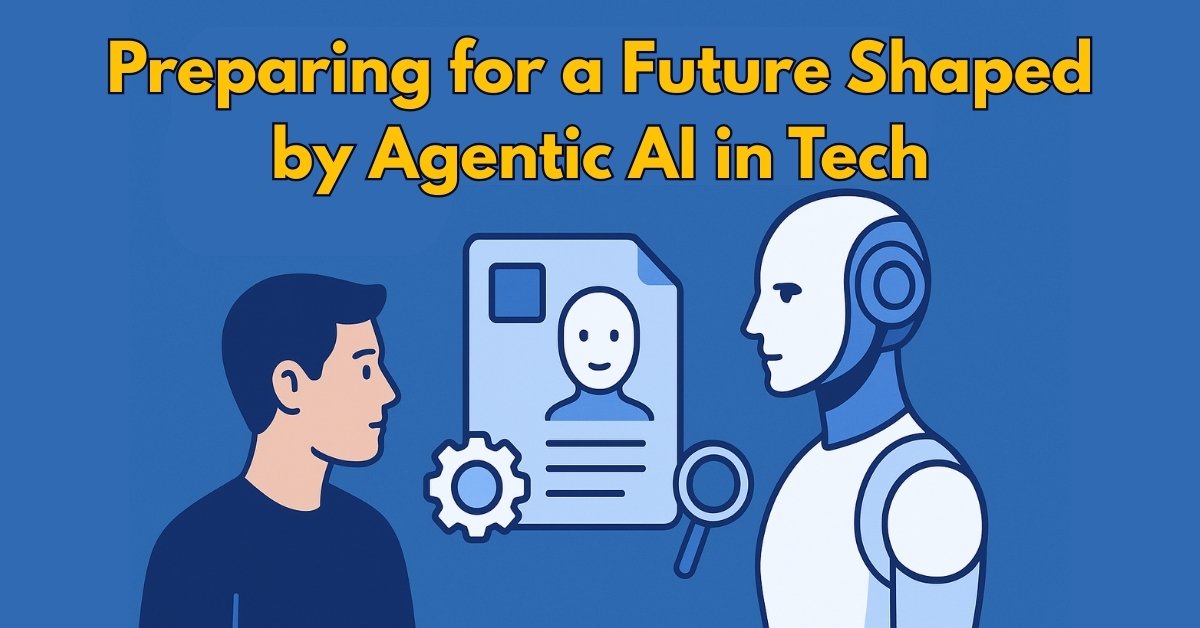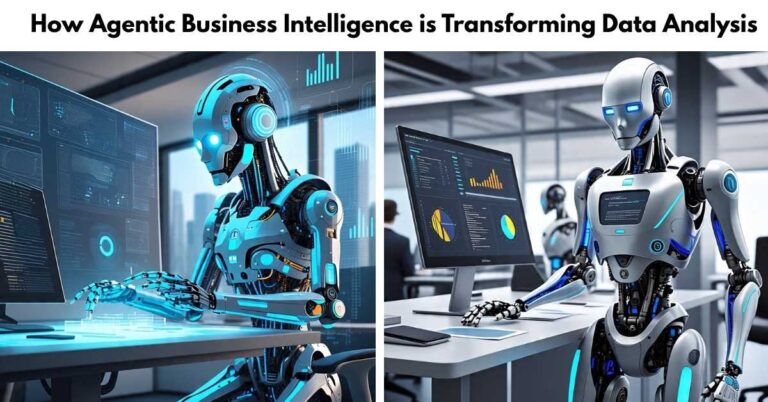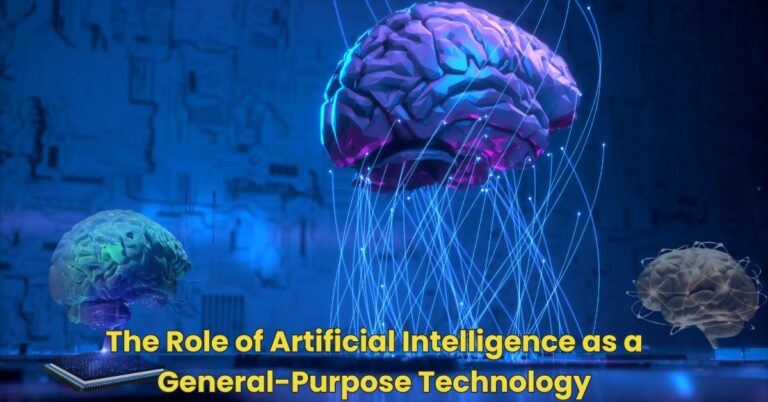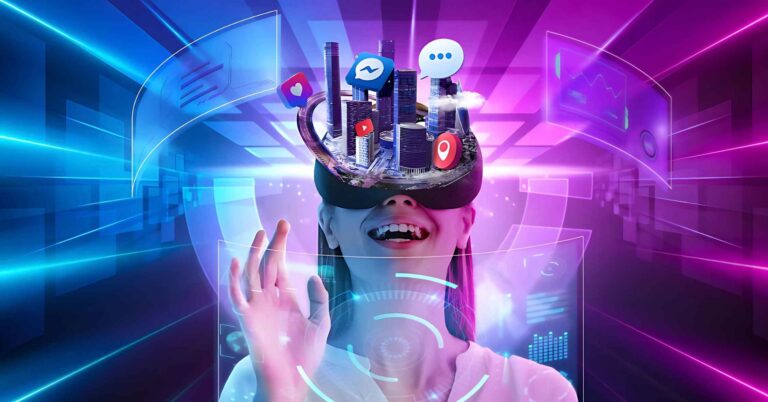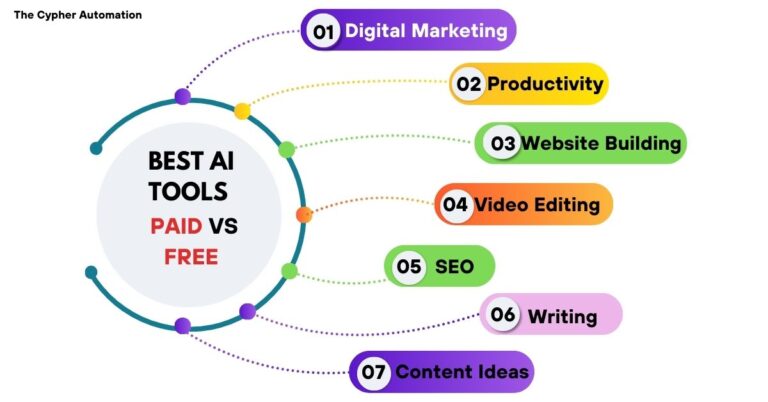Preparing for a Future Shaped by Agentic AI in Tech
In today’s fast-evolving tech world, Agentic AI is becoming the next big leap in artificial intelligence. Unlike traditional AI that follows set instructions, Agentic AI acts like an independent thinker—it plans, decides, and takes action on its own. Imagine having a super-smart assistant that not only understands your goals but also figures out the best way to reach them, even when the situation changes. This ability to act autonomously makes Agentic AI a powerful tool for solving complex problems across industries such as healthcare, finance, and smart cities.
Preparing for a future shaped by Agentic AI means understanding how this technology works and how it can impact our lives. With its goal-driven behavior and adaptability, Agentic AI is set to transform the way businesses operate and how we interact with machines daily. But with great power comes great responsibility—the challenges of ethics, privacy, and the future of work need careful attention. This article will explore what Agentic AI is, its uses, advantages, and how tech professionals can get ready to embrace this revolutionary technology.
What is Agentic AI? Definition and Meaning
Agentic AI is an advanced form of artificial intelligence designed to act autonomously with minimal human supervision. Unlike traditional or generative AI, which respond to direct prompts or follow fixed rules, agentic AI systems have the ability to plan, decide, and execute tasks independently. The term “agentic” means the AI has agency—it can set goals, adapt to changes, and solve complex, multi-step problems on its own.
Think of agentic AI as a highly capable digital assistant or team member. Instead of waiting for instructions, it proactively takes action based on its understanding of goals and environmental conditions. For example, agentic AI can monitor supply chains, adjust workflows, or coordinate multiple systems without constant human input.
This represents a fundamental shift from reactive AI, driving innovation across industries by handling more complex and dynamic tasks with efficiency and adaptability.
How Agentic AI Differs from Traditional AI
Unlike traditional AI systems, which mostly react to specific inputs or data, agentic AI is proactive. Traditional AI follows strict programmed rules or produces outputs based on user queries but doesn’t “think ahead” or self-manage goals.
Key differences include:
- Autonomy: Agentic AI acts independently, traditional AI requires user direction.
- Goal-Oriented: Agentic AI sets and pursues complex, evolving objectives.
- Adaptability: Agentic AI learns from changing environments, traditional AI often operates within fixed parameters.
- Collaboration: Agentic AI can coordinate with humans and other AI agents flexibly.
This evolution means agentic AI is better suited for real-world applications requiring decision making, foresight, and interaction with unpredictable data or environments.
Historical Evolution of AI Towards Agentic Models
AI started as simple rule-based systems following explicit instructions. Over decades:
- Early AI: Focused on basic tasks and logic.
- Machine Learning: Enabled AI to learn from data patterns.
- Deep Learning: Allowed complex problem-solving using neural networks.
- Generative AI: Capable of producing content (like text, images) from prompts.
Agentic AI builds on these advances by integrating autonomy, iterative planning, and reinforcement learning, enabling systems to act proactively and manage tasks end-to-end with little human oversight.
This progression marks a shift from passive tools to intelligent agents able to support complex workflows and innovation.
What are the Types of Agentic AI Systems?
Agentic AI systems can be classified based on their capabilities and interaction styles:
Reactive Agents
- Operate based on present inputs without planning ahead.
- Respond quickly to changes but lack foresight.
- Example: Simple automated customer service bots.
Proactive Agents
- Anticipate needs and act without waiting for prompts.
- Adjust tasks before problems arise.
- Example: Supply chain monitors predicting delays and rerouting shipments.
Autonomous Agents
- Fully independent decision-makers able to handle entire workflows.
- Learn and adapt to new goals.
- Example: Autonomous vehicles navigating traffic in real time.
Collaborative Multi-Agent Systems
- Multiple agents working together or alongside humans.
- Share information to achieve common objectives.
- Example: AI agents in healthcare coordinating treatment across specialists.
Examples in Today’s Tech World
| Industry | Agentic AI Application | Description |
|---|---|---|
| Healthcare | Personalized treatment planning | AI agents develop custom care plans adapting to patient conditions. |
| Finance | Algorithmic trading | AI makes autonomous buy/sell decisions based on market shifts. |
| Customer Service | Advanced chatbots | AI independently handles queries and escalates complex issues. |
| Transportation | Self-driving cars | Vehicles navigate and make safety decisions autonomously. |
| Smart Cities | Traffic and energy management | AI proactively optimizes resources for efficiency. |
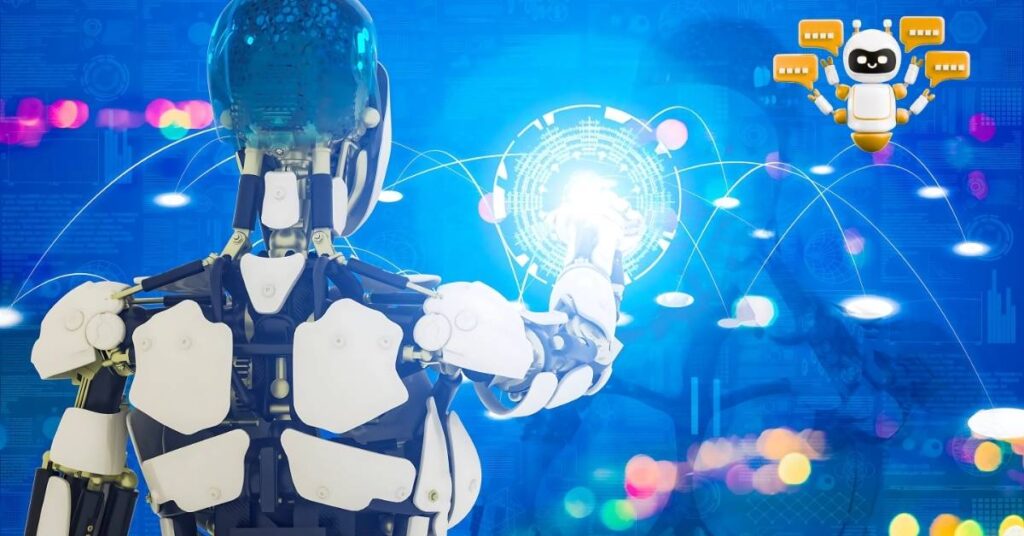
What are the Advantages of Agentic AI?
Agentic AI promises multiple benefits:
1:- Scalability and Automation
Able to manage large-scale, complex processes without human bottlenecks.
2:- Efficiency in Complex Decision-Making
Makes real-time decisions using up-to-date data and adaptive reasoning.
3:- Adaptability to Dynamic Environments
Learns continuously and adjusts actions based on environmental changes.
4:- Enhanced Human-AI Collaboration
Works alongside humans, augmenting their capabilities and sharing tasks.
5:- Business and Economic Benefits
Drives innovation, reduces costs, and improves outcomes across sectors.
What are the Characteristics of Agentic AI Systems?
Agentic AI systems possess these key traits:
- Autonomy: Operate independently with minimal supervision.
- Proactivity: Anticipate needs and take initiative.
- Learning Ability: Improve over time by analyzing outcomes and feedback.
- Goal-Oriented Behavior: Break down and pursue complex objectives systematically.
- Interoperability: Communicate and collaborate with other systems and humans.
How Does Agentic AI Work?
Agentic AI combines several advanced technologies:
a) Underlying Algorithms and Models
- Relies on machine learning, reinforcement learning, and symbolic reasoning.
b) Integration of Machine Learning and Reinforcement Learning
- Learns optimal actions through trial and error in dynamic environments.
c) Role of Natural Language Processing (NLP)
- Understands human language to interact naturally and interpret instructions.
d) Data Input, Processing, and Feedback Loops
- Processes real-time data, evaluates actions, and adjusts plans continuously.
Examples of Real-World Workflows
- AI agents monitoring production lines optimize schedules autonomously in response to supply changes.
What are the Use Cases of Agentic AI?
Agentic AI is transforming many fields:
Healthcare
In healthcare, Agentic AI is helping doctors and patients in amazing ways.
- Medical diagnostics: Agentic AI can look at X-rays, scans, or blood test results and quickly detect diseases like cancer, heart issues, or infections. It helps doctors make faster and more accurate diagnoses.
- Personalized treatment plans: Every patient is different, so one treatment doesn’t fit all. Agentic AI can analyze a person’s medical history and lifestyle to create custom treatment plans that improve recovery and reduce side effects.
Finance
Banks and financial companies also use Agentic AI to keep money safe and improve investments.
- Fraud detection: AI agents watch millions of transactions in real time. If they notice unusual spending or suspicious activity, they flag it instantly. This protects people from credit card fraud and online scams.
- Algorithmic trading: In stock markets, Agentic AI can make fast trades by analyzing market trends and predicting price movements. This helps investors earn better profits while reducing risks.
Education
Learning is becoming more personalized with the help of Agentic AI.
- Adaptive learning platforms: These platforms adjust lessons based on a student’s progress. If a student struggles with math, the AI gives extra practice until they understand, making learning more effective.
- Virtual teaching assistants: AI assistants can answer student questions, provide homework help, or guide learners 24/7. This gives teachers more time to focus on classroom discussions and creative projects.
Business & Customer Service
Agentic AI is also changing how companies interact with customers and manage work.
- Chatbots and digital agents: Many websites and apps use AI chatbots to answer customer questions instantly. They provide 24/7 support and reduce wait times.
- Workflow automation: AI agents can handle repetitive tasks like scheduling, email sorting, or data entry. This helps employees save time and focus on more meaningful work.
Cybersecurity
With so much data online, security is a big concern.
- Threat detection and response: Agentic AI can scan networks for viruses, malware, or hacking attempts. Once a threat is spotted, it responds quickly to block the attack and protect sensitive data.
Transportation & Smart Cities
Agentic AI is also making travel and cities smarter.
- Self-driving cars and traffic management: AI agents can control autonomous vehicles, improve traffic flow, and reduce accidents.
- Smart cities: From energy management to waste collection, Agentic AI helps cities become more efficient, safe, and eco-friendly.
Challenges for Agentic AI Systems
| Challenge Type | Details | Impact |
|---|---|---|
| Technical | Reliability, accuracy, and scalability | Limits system trust and broad deployment |
| Ethical & Social | Bias, fairness, and job displacement concerns | Could cause social inequalities or unrest |
| Regulatory & Security | Data privacy and global AI governance | Necessitates careful oversight and compliance |
Why Agentic AI is the Next Big Shift
Agentic AI marks a leap from predictive to autonomous AI, capable of taking initiative rather than just responding. This transformation affects industries and the global workforce significantly, surpassing previous AI waves such as Machine Learning, Deep Learning, and Generative AI.
Tech professionals should be proactive in understanding and adapting to these changes to stay competitive.
Industry Implications
| Industry | Agentic AI Impact |
|---|---|
| Healthcare | Improves care accuracy, patient outcomes |
| Finance | Enhances risk management and trading decisions |
| Retail & E-commerce | Personalizes customer experiences |
| Manufacturing | Optimizes production and supply chains |
| Education | Provides personalized and scalable learning |
| Government | Supports public services with automated processes |
How Can AWS Support Your Agentic AI Requirements?
AWS provides powerful tools to build agentic AI systems:
- AI and ML Tools: Pre-trained models and frameworks to get started quickly.
- Cloud Infrastructure: Scalable and secure platforms for AI workloads.
- APIs: Enable integration and customization of AI agents.
- Case Studies: Demonstrated success across industries using AWS for agentic AI.
How Tech Professionals Can Prepare
To thrive in the age of agentic AI:
- Build AI literacy and core knowledge.
- Learn reinforcement learning and multi-agent system concepts.
- Upskill in cloud computing, data engineering, data science and security.
- Experiment with open-source agentic AI tools.
- Join AI communities for networking and collaboration and enhance your AI skills.
- Explore emerging career paths in autonomous AI technology.
Future of Agentic AI
Agentic AI is poised for rapid growth with increasing integration into Artificial General Intelligence (AGI). It will play a key role in shaping the future of work by balancing human oversight with AI autonomy, driving productivity, and enabling entirely new workflows.
In Conclusion
Agentic AI represents a new era where intelligent systems act independently to solve complex problems. It promises vast benefits but also poses challenges requiring responsible adoption.
Tech professionals and organizations must understand agentic AI deeply, prepare strategically, and embrace continuous learning to lead this transformative journey.
Frequently Asked Questions (FAQs)
What is agentic AI?
Agentic AI is an autonomous AI system capable of independently planning, deciding, and taking actions to achieve complex goals with minimal human oversight.
How is agentic AI different from traditional AI?
Traditional AI typically reacts to input prompts and follows fixed rules, while agentic AI proactively sets goals, learns from the environment, and adapts its actions continuously.
What are some real-world examples of agentic AI?
Examples include autonomous vehicles, personalized healthcare treatment plans, AI-driven financial trading, and intelligent supply chain management.
What industries benefit most from agentic AI?
Healthcare, finance, retail, manufacturing, education, and government sectors are seeing significant impacts from agentic AI technologies.
How can professionals prepare for a future with agentic AI?
Focus on building AI literacy, understanding reinforcement learning, gaining cloud computing skills, experimenting with AI tools, and engaging with AI research communities.
The future of technology is agentic AI—intelligent, autonomous, and transformative. To stay ahead, start building your knowledge and skills today. Explore AWS AI tools, join AI forums, and experiment with real-world projects to harness the power of agentic AI for innovation and success.

